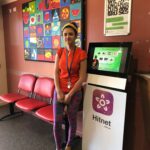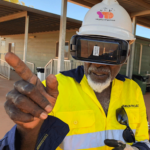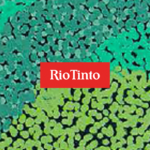CASE STUDY: LEADING RECONCILIATION
The 2018-2022 Rio Tinto Elevate Reconciliation Action Plan
Challenge:
Rio Tinto, a major mining company in Australia, recognised the need to strengthen its commitment to Reconciliation with Indigenous Australians. The existing Reconciliation Action Plan (RAP) had reached its term, and a new plan was required to outline tangible actions and measurable goals for ongoing improvement. Additionally, Rio Tinto, as a leading company within the resources sector, sought to demonstrate its support for broader industry efforts towards Reconciliation.
Solution:
As the manager of the East Coast Indigenous Affairs Team at Rio Tinto, Steven Pelham played a key role in developing the 2018-2022 Rio Tinto Elevate RAP. This designation signifies the plan’s ambitious goals and commitment to driving systemic change for Indigenous Australians. The comprehensive plan involved extensive consultation with Traditional Owners, Indigenous communities, and internal stakeholders across Rio Tinto.
Aligning with the Uluru Statement from the Heart:
Recognising the importance of the Uluru Statement from the Heart, a powerful call for a First Nations Voice enshrined in the Australian Constitution, the 2018-2022 Elevate RAP actively sought to support the Statement’s core principles. Rio Tinto, as an Elevate RAP member, collaborated with other leading corporations across Australia to explore avenues for collective action that could contribute to achieving the goals outlined in the Statement.
Impact:
The 2018-2022 Elevate RAP established a clear framework for Reconciliation initiatives at Rio Tinto. The plan focused on key areas like:
- Indigenous employment: Setting ambitious targets for increasing Indigenous employment opportunities across Rio Tinto operations.
- Business partnerships: Building stronger partnerships with Indigenous businesses to create shared value.
- Cultural awareness training: Implementing cultural awareness training programs for all Rio Tinto employees.
- Community investment: Directing resources towards supporting social and economic development within Indigenous communities.
The 2018-2022 Elevate RAP positioned Rio Tinto as a leader in Reconciliation within the Australian resources sector. The plan’s success demonstrates Steven’s commitment to fostering positive relationships and driving meaningful change for Indigenous Australians.
Key Considerations:
- Community Engagement: The plan was developed through a collaborative process that prioritised the voices and perspectives of Indigenous stakeholders.
- Measurable Goals: The RAP outlined specific and measurable goals for each area of focus, ensuring accountability and tracking progress.
- Cultural Sensitivity: The plan emphasised respect for Indigenous cultures and traditions while aiming to create long-term benefits for communities.
A Commitment Re-evaluated:
It’s important to acknowledge that in May 2020, Rio Tinto destroyed the sacred Cultural Heritage rock shelters at Juukan Gorge. This event deeply impacted Steven’s perspective on Reconciliation within the company.
Following this incident, Steven re-evaluated his commitment to Rio Tinto and later exited the business.
However, Steven’s dedication to Reconciliation with Indigenous Australians remained steadfast. He focused his efforts on rebuilding relationships with Traditional Owners and national stakeholders. His expertise was also recognised by the Rio Tinto global board, who seconded him to assist in repairing the company’s reputation.
This case study highlights Steven’s leadership role in developing a comprehensive Elevate RAP for Rio Tinto. It showcases his ability to work collaboratively with Indigenous stakeholders, champion the Uluru Statement from the Heart, and drive positive change within the corporate sector. It also acknowledges the complexities of Reconciliation and Steven’s ongoing commitment to building a more respectful future for Indigenous and non-Indigenous Australians.
total EMPLOYEES reachED
24,000
INCREASE INDIGENOUS SPEND
156m
INCREASE INDIGENOUS LEADERS
+35%
INCREASE INDIGENOUS WORKFORCE
+3%
More case studies…




